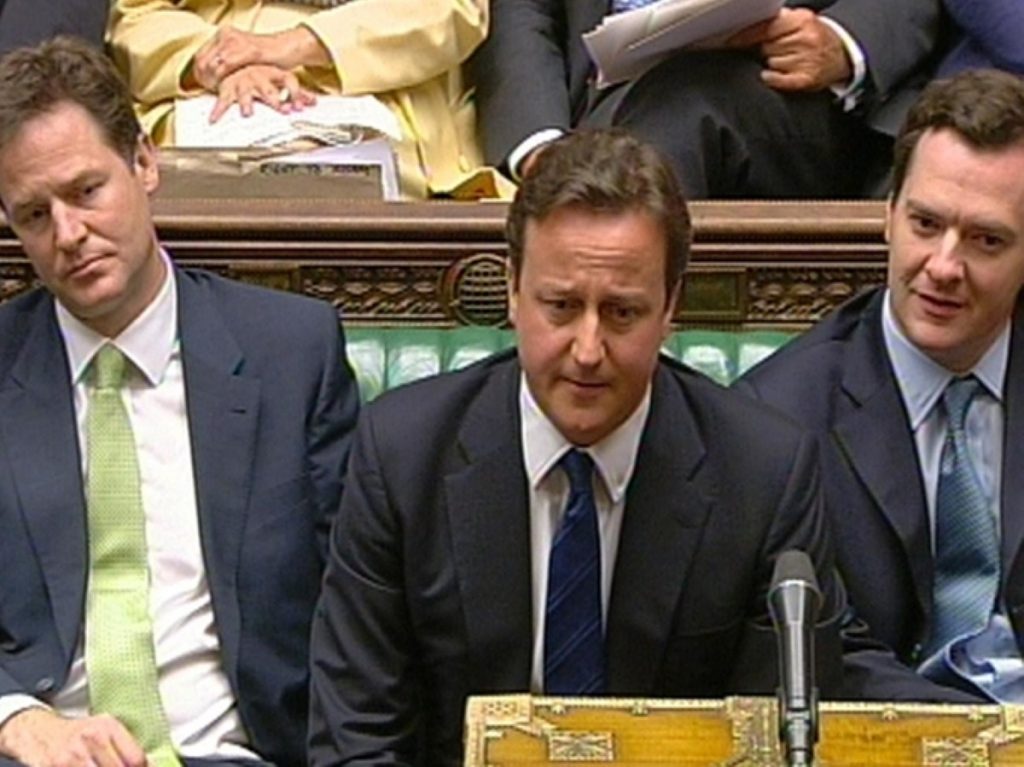PM pins striking unions on Miliband
By Ian Dunt Follow @IanDunt
This article was first published on Wednesday June 29th 2011
Labour's silence on tomorrow's public sector strikes shows it has been bought off by the trade unions, David Cameron said today.
The prime minister made the accusation during a stormy PMQs session, in which Ed Miliband focused his fire on reforms to the NHS.


Most commentators concluded that the Labour leader won the session but the prime minister was enraged by his refusal to comment on tomorrow's industrial action, which could see up to 750,000 workers – including teachers and immigration staff – go on strike.
"He's in the pocket of the unions," Mr Cameron shouted across the Commons chamber.
"He can't talk about Greece because he wants us to be the same as Greece. He has to talk about the micro because he can't talk about the macro."
The prime minister was then interrupted by Speaker John Bercow, who halted Mr Cameron halfway through before telling MPs to tone down the noise.
Looking visibly angry, Mr Cameron later said coldly: "I hope it's in order, Mr Speaker, to discuss Labour performance in Wales."
Questions from backbench Conservatives later in the session allowed the prime minister to return to the theme, saying he had not heard a "squeak" from the opposition benches about the strikes. He then accused trade unions of spreading "myth and disinformation" about public sector pensions.
The Labour leader was trying to emerge from a political debate which was problematic on both sides, as left-wing commentators attacked him for urging his own MPs to cross the picket line.
Labour MPs would "come to work as normal", a spokesperson for the leader of the opposition said.
Labour is supporting the government over the strikes, but is also asserting that Mr Cameron and his negotiating team are "spoiling for a fight" when they should have approach negotiations with patience and delicacy.
"When they should be building bridges to find a solution they are mishandling the whole situation, with parents paying the price," the Labour leader wrote on his blog.
"When Labour was in office we had tough negotiations limiting the taxpayers' liability for the rising cost of public sector pensions. We increased the age new employees would retire. We moved many from final salary to career average schemes. We did it without strikes and under Labour the number of days lost through industrial disputes fell to its lowest-ever level.
"This government has acted in a reckless and provocative manner."
In addition to tomorrow's strike, thousands of workers are expected to march to parliament over the pensions issue.

